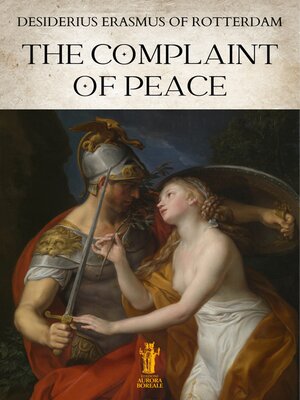
Sign up to save your library
With an OverDrive account, you can save your favorite libraries for at-a-glance information about availability. Find out more about OverDrive accounts.
Find this title in Libby, the library reading app by OverDrive.



Search for a digital library with this title
Title found at these libraries:
| Library Name | Distance |
|---|---|
| Loading... |
Desiderius Erasmus of Rotterdam (1466-1536) was a Dutch humanist, Catholic theologian, educationalist, satirist and philosopher. Through his vast number of translations, books and essays, he is considered one of the most influential thinkers of the Northern Renaissance and one of the major figures of Dutch and Western culture.
He was an important figure in classical scholarship who wrote in a spontaneous, copious and natural Latin style. As a Catholic priest developing humanist techniques for working on texts, he prepared important new Latin and Greek editions of the New Testament, and also wrote fundamental works as On Free Will, The Praise of Folly, Handbook of a Christian Knight, On Civility in Children, and many other essays.
Erasmus' work Querela Pacis (The Complaint of Peace), which we propose to our readers today, is one of the classics of the literature of peace, which has enjoyed a widespread and continuous hearing. In the text it is Peace, in her own person, who addresses the reader. It was composed in 1516 and first published in 1517.
To us posterity, Erasmus leaves a lesson that goes beyond the specific content of the text: Peace always needs those who give it voice.
He was an important figure in classical scholarship who wrote in a spontaneous, copious and natural Latin style. As a Catholic priest developing humanist techniques for working on texts, he prepared important new Latin and Greek editions of the New Testament, and also wrote fundamental works as On Free Will, The Praise of Folly, Handbook of a Christian Knight, On Civility in Children, and many other essays.
Erasmus' work Querela Pacis (The Complaint of Peace), which we propose to our readers today, is one of the classics of the literature of peace, which has enjoyed a widespread and continuous hearing. In the text it is Peace, in her own person, who addresses the reader. It was composed in 1516 and first published in 1517.
To us posterity, Erasmus leaves a lesson that goes beyond the specific content of the text: Peace always needs those who give it voice.







